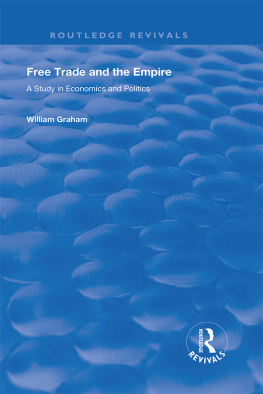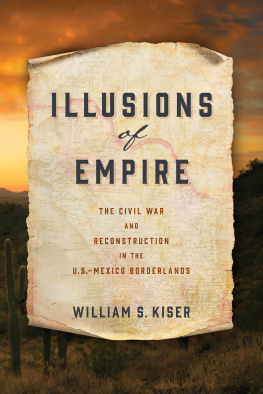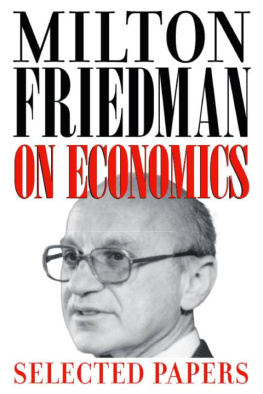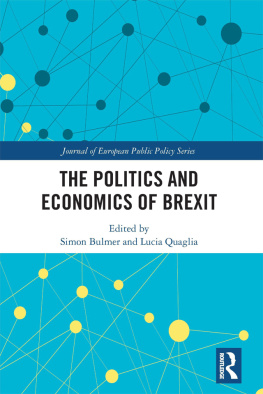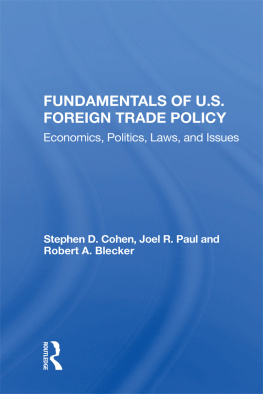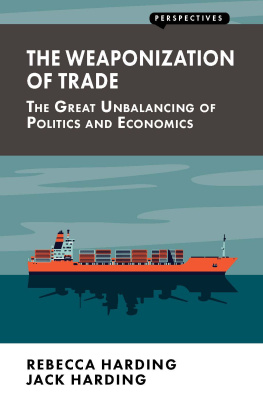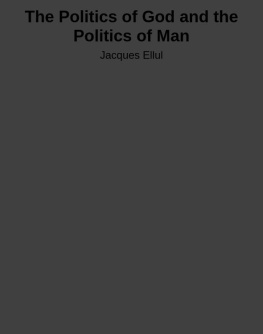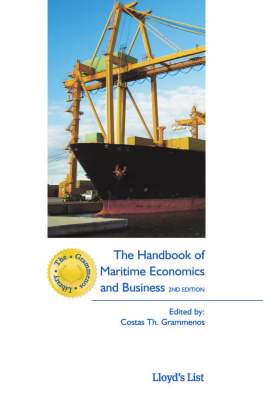Routledge Revivals
Free Trade and the Empire
Free Trade and the Empire
A Study in Economics and Politics
by
Professor William Graham
First published in 1904 by Kegan Paul, Trench, Trbner & Co. Limited
This edition first published in 2019 by Routledge
2 Park Square, Milton Park, Abingdon, Oxon, OX14 4RN
and by Routledge
52 Vanderbilt Avenue, New York, NY 10017
Routledge is an imprint of the Taylor & Francis Group, an informa business
1904 by Taylor & Francis
All rights reserved. No part of this book may be reprinted or reproduced or utilised in any form or by any electronic, mechanical, or other means, now known or hereafter invented, including photocopying and recording, or in any information storage or retrieval system, without permission in writing from the publishers.
Publishers Note
The publisher has gone to great lengths to ensure the quality of this reprint but points out that some imperfections in the original copies may be apparent.
Disclaimer
The publisher has made every effort to trace copyright holders and welcomes correspondence from those they have been unable to contact.
A Library of Congress record exists under ISBN:
ISBN 13: 978-0-367-24606-8 (hbk)
ISBN 13: 978-0-429-28344-4 (ebk)
Free Trade and the Empire
You are holding a reproduction of an original work that is in the public domain in the United States of America, and possibly other countries. You may freely copy and distribute this work as no entity (individual or corporate) has a copyright on the body of the work. This book may contain prior copyright references, and library stamps (as most of these works were scanned from library copies). These have been scanned and retained as part of the historical artifact.
This book may have occasional imperfections such as missing or blurred pages, poor pictures, errant marks, etc. that were either part of the original artifact, or were introduced by the scanning process. We believe this work is culturally important, and despite the imperfections, have elected to bring it back into print as part of our continuing commitment to the preservation of printed works worldwide. We appreciate your understanding of the imperfections in the preservation process, and hope you enjoy this valuable book.
FREE TRADE AND THE EMPIRE
FREE TRADE AND THE EMPIRE
A STUDY IN ECONOMICS AND POLITICS
BY
PROFESSOR WILLIAM GRAHAM, M.A.
AUTHOR OF
'SOCIALISM NEW AND OLD,' 'ENGLISH POLITICAL PHILOSOPHY ' ETC.
THE chief object of this pamphlet is to set forth, in a connected form, the main aspects of the great tariff controversy now for some time before the public; to treat the question more deeply and fully than the exigencies of the platform usually allow; and at the same time to treat it, as far as may be, from a scientific and as little as possible from a party point of view.
The question is one both of economics and politics, and it raises the most important and delicate and complicated issues in both subjects. On the economical side I have treated the question from the point of view of the new Historical and Comparative School, as well as from that of the traditional or Deductive School from Adam Smith to Mill; believing, as I do, that the latter method alone is likely to shut out important aspects of the subject, and especially to hide the truth, which is the great lesson of the newer school, that economic doctrines are rarely of absolute or universal application, but are relative to time, country, and the circumstances of each country.
But the question is also political as well as economic, and political considerations cannot be dispensed with in the question of Free Trade and Protection; in regard to which great interests within a nation may be opposed to each other, while high interests of the State as a whole in relation to other States may be involved; it is also a political question so far as it is connected with the question of Imperial Federation, or closer union between the Mother Country and the Colonies; and in both respects the best political ideas of our time will be needed for the proper solution of it.
Above all, in dealing with a question involving the future of the United Kingdom as well as of the British Empire itself, it is necessary to rise above the merely party point of view, or the temporary interests of parties. What is needed is wider and clearer light, uncoloured by party, undistorted by sectarian bias or dogma. There is wanted an appeal from platform or press arguments equally confidentthough contradictory to each other, and equally drawing on narrow principles and limited knowledgeto wider principles, a more impartial tribunal, and scientific methods that admit of some sort of verification; and the attempt is here made to furnish such a fuller and more scientific treatment of the question, while at the same time to make it as intelligible as the difficult nature of the subject admits.
There is, I believe, a large and intelligent class wanting this further light and more exact treatment, and it is to this class mainly that the following pages are addressed in the hope that so far as the policy advocated and the reasons urged in its favour recommend themselves to their intelligence, it may, through their influence, have some effect in the sphere of practice; that it may at least do some good or prevent some evil, especially rash or premature action where retreat might be difficult or impossible.
It may be well to add that the conclusions reached in are mainly devoted to a consideration of the ideas of Mr. Chamberlain on Protection, the self-sustaining Empire, and Imperial Federation.
Chapter I
Free Trade and Protection in the Nineteenth Century
FREE TRADE AND THE EMPIRE
DURING the first fifty years of the nineteenth century England enjoyed a monopoly in nearly all branches of manufacture, in addition to her commercial supremacy. The monopoly extended to the various textile industries of cotton, woollen, linen, lace, silk; the iron and steel industries; the hardware industry. She had her supremacy from the great series of new inventions which made the Industrial Revolution, which inventions enabled her to produce on a great scale and far more cheaply than before, and much more cheaply than the foreigners working with their ruder methods and apparatus. England enjoyed this monopoly unchallenged during the Great War, and for some quarter of a century afterwards. During the war the old industries on the Continent were gradually broken up, though the old rude methods long survived. England supplied the Continent with manufactures so far as Napoleon's Berlin Decrees and exclusive policy allowed it.
After the war the Continental nations still more bought English manufactureslinen, woollen, cotton, hardwareand gave in return corn, wines, timber, wool, raw flax, hemp, etc. Duties were levied on imported goods on both sides, but they were not protective duties, except the English duties on corn; for the Continental nations had scarcely any manufactures to protect or that competed with ours. England, having the monopoly of many industries, naturally enjoyed high prices and a very great rate of profits. The high prices were not the concomitants, as monopoly prices sometimes are, of a narrow market There was a vast demand, almost a world-wide demand, for commodities, some of them being of the nature of necessaries: a demand so great that the supply could never overtake it, so great that the supply of the raw material of one of themthe cottonwas always short and that the wages of all the operatives in Lancashire were continually increasing. Even when the powers of production were greatly multiplied by the substitution of steam for waterpower in factories and mills, the demand was still largely ahead of the supply.

